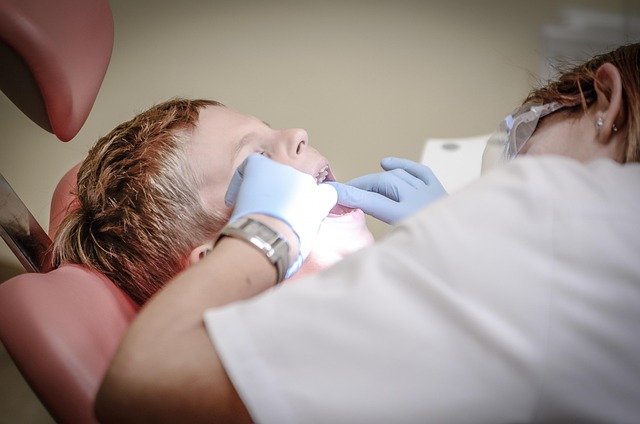Dental Implants Through Public Health Coverage: Complete Guide
Wondering if dental implants are covered under Canada's public health system? This guide explains eligibility, the step-by-step process for applying, what costs may still apply, and what to do if your application is denied. A clear path toward better oral health.

Public Coverage Eligibility for Dental Implants
In Canada, public dental coverage varies significantly across provinces and territories. Most provincial health plans do not cover routine dental procedures, including dental implants, for the general adult population. However, certain groups may qualify for assistance. Seniors, low-income individuals, people with disabilities, and children from low-income families often have access to limited dental benefits through provincial programs.
Eligibility typically depends on factors such as income level, age, disability status, and specific medical conditions. For example, some provinces offer coverage for medically necessary dental procedures when tooth loss affects overall health or the ability to eat. Dental implants may be considered if they are deemed essential rather than cosmetic. Veterans through Veterans Affairs Canada and Indigenous peoples through the Non-Insured Health Benefits program may also have access to dental implant coverage under specific circumstances.
The Canadian Dental Care Plan, introduced federally, aims to expand access to dental services for uninsured Canadians with household incomes below certain thresholds. While this program covers many preventive and restorative services, coverage for dental implants remains limited and subject to clinical necessity assessments.
How to Request Assessment
Requesting an assessment for public coverage of dental implants begins with consulting your dentist. Your dental professional will evaluate your oral health condition and determine whether implants are medically necessary. If your dentist believes you qualify, they will prepare a detailed treatment plan outlining the clinical justification for the procedure.
Next, contact your provincial or territorial health ministry or the specific dental program for which you may be eligible. Many provinces require you to apply formally through designated channels. You may need to complete application forms and submit supporting documentation from your dentist. Some programs require pre-authorization, meaning approval must be granted before treatment begins.
For federal programs like the Canadian Dental Care Plan or Non-Insured Health Benefits, applications are processed through their respective administrative bodies. Ensure you understand the timeline for assessment, as approval processes can take several weeks to months. During this period, maintain communication with both your dental provider and the coverage administrator to track your application status.
Required Documents and Referrals
Gathering the correct documentation is crucial for a successful application. Most public dental programs require proof of identity, such as a government-issued ID or health card. You will also need to provide proof of income, which may include recent tax returns, pay stubs, or social assistance statements, depending on the program’s income eligibility requirements.
A comprehensive dental assessment report from your dentist is essential. This report should include diagnostic imaging such as X-rays or CT scans, a detailed explanation of your current oral health condition, and the clinical rationale for dental implants. Some programs may also require a referral from a general practitioner or specialist, particularly if the implants are needed due to a medical condition such as oral cancer, severe trauma, or congenital defects.
Additional documents may include proof of residency, disability certification if applicable, and any previous dental treatment records. Keep copies of all submitted materials for your records and follow up regularly to ensure your application is being processed.
What Expenses Are Typically Not Covered
Even when public coverage is granted for dental implants, many associated costs remain the patient’s responsibility. Cosmetic procedures are almost never covered, meaning implants sought purely for aesthetic reasons will not qualify for public funding. Initial consultations, diagnostic imaging beyond what is deemed medically necessary, and preparatory procedures such as bone grafting may also fall outside coverage limits.
The cost of the implant crown, which is the visible tooth portion attached to the implant post, is frequently excluded or only partially covered. Sedation or anesthesia options beyond local anesthesia often require out-of-pocket payment. Maintenance and follow-up appointments, including adjustments and cleanings specific to implants, may not be included in public plans.
Additionally, if complications arise during or after the procedure, treatment for those complications might not be covered. Patients should clarify with their coverage provider exactly which components of the implant process are included and budget accordingly for excluded expenses.
Cost Considerations and Alternatives
Understanding the financial landscape of dental implants is important, even when seeking public coverage. In Canada, the cost of a single dental implant typically ranges from $3,000 to $6,000, depending on the complexity of the case, the materials used, and the geographic location. This estimate includes the implant post, abutment, and crown. Additional procedures such as bone grafting or sinus lifts can add $500 to $3,000 or more to the total cost.
For those exploring options, several dental providers and clinics across Canada offer implant services. Below is a comparison of typical service offerings:
| Provider Type | Services Offered | Cost Estimation |
|---|---|---|
| Private Dental Clinics | Single implants, full-arch restorations, bone grafting | $3,000 - $6,000 per implant |
| University Dental Schools | Implants performed by supervised students, lower fees | $2,000 - $4,000 per implant |
| Community Health Centres | Limited implant services, income-based sliding scale | $1,500 - $4,500 per implant |
| Specialist Oral Surgery Clinics | Complex cases, advanced techniques, higher expertise | $4,000 - $7,000 per implant |
Prices, rates, or cost estimates mentioned in this article are based on the latest available information but may change over time. Independent research is advised before making financial decisions.
Alternatives if Public Funding is Denied
If your application for public coverage is denied, several alternatives can help you access dental implants. Private dental insurance plans may offer partial coverage for implants, though many policies have waiting periods and annual maximums. Review your policy carefully or consult with your insurer to understand your benefits.
Dental financing plans are widely available through dental offices and third-party lenders. These plans allow you to spread the cost of treatment over monthly payments, often with low or no interest for a promotional period. Ensure you understand the terms and interest rates before committing.
University dental schools provide implant services at reduced rates, as procedures are performed by dental students under the supervision of experienced faculty. While treatment may take longer, this option offers significant cost savings. Community health centres and non-profit organizations sometimes offer dental services on a sliding fee scale based on income.
Other alternatives include dental tourism, where patients travel to countries with lower dental costs, though this carries risks related to follow-up care and quality assurance. Some patients opt for less expensive alternatives to implants, such as bridges or dentures, which may be more readily covered by public or private insurance.
Conclusion
Accessing dental implants through public health coverage in Canada requires careful navigation of eligibility criteria, application processes, and documentation requirements. While coverage is limited and often reserved for medically necessary cases, understanding your options and preparing thoroughly can improve your chances of approval. When public funding is unavailable, exploring private insurance, financing plans, and alternative providers can make dental implants more accessible. Always consult with dental professionals and coverage administrators to make informed decisions about your oral health care.
This article is for informational purposes only and should not be considered medical advice. Please consult a qualified healthcare professional for personalized guidance and treatment.




